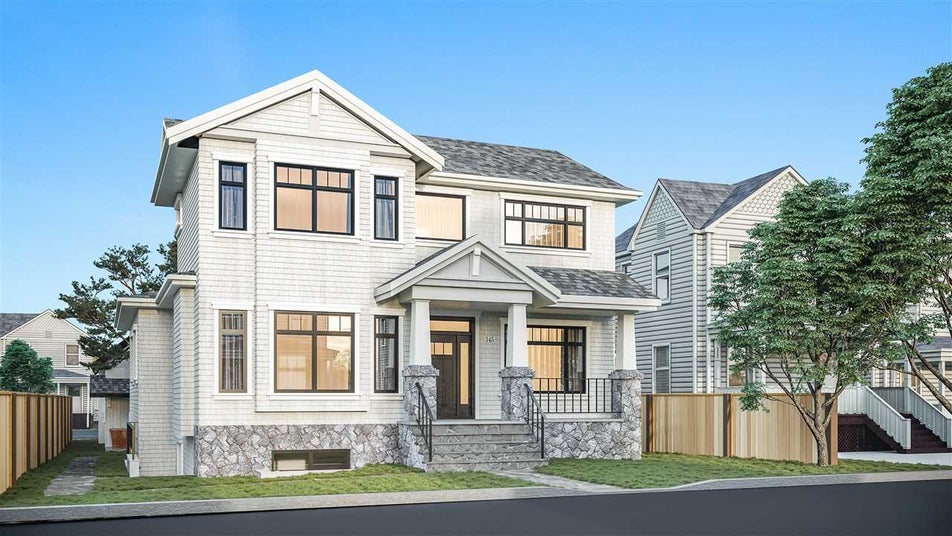Pre-sale homes are a great way to get into the market as a first time home buyer or as an investor. During a “hot” market the returns can be quite lucrative as the home increases in value during the construction period. It can also be a bit of a gamble if the market swings the other way.
WHAT IS A PRE-SALE?
A pre-sale is a home that’s available to purchase prior to being move-in ready. You can choose to purchase either before construction starts or during construction. There are times when construction has been completed and the home is move-in ready yet has not been sold—this is referred to as “new construction.”
WHAT ARE THE BENEFITS TO BUYING PRE-SALE?
• Selection of a home and early access to a building.
• Delay of Mortgage until completion of the building. This allows for more time to save for the down payment and closing costs. There’s still the ability to have a rate hold from a partnering lender with the development. If rates go up, the rate hold would apply. If rates go down, the lesser amount would be the rate for the mortgage term.
• Building Up Equity. As housing prices rise over the course of the construction period, the contract on the home also rises in value. Before completing your home there’s the potential to see profit. The ROI is why pre-sales are so popular with investors.
• Warranty Protection. Pre-sale homes come with 2, 5 or 10-year warranties, which allow for minimal cost as a new owner upon moving in.
One of the key benefit to purchasing pre-sale is:
• Seven-day rescission period. Legally required by the Real Estate Marketing Act, there is a seven-day period from an accepted contract to allow for a purchaser to do their due diligence of reading the disclosure statement and ensuring this is the best purchase for their individual needs before committing to the purchase. After the seven-day period, the contract becomes firm and binding.
WHAT DO YOU NEED TO KNOW ABOUT BUYING A PRE-SALE?
Deposit: Each development will have its own deposit structure and amount required. Typically 5-10% is required when writing the contract and incremental deposits will be required up to 20% (Foreign buyers can be expected to pay up to 30%). The deposit is put towards your down payment at closing. The balance of the funds is due at completion.
GST: Federal tax is required on new construction and will be payable at the time of completion. If applicable, the buyers’ lawyer or notary will submit the GST rebate on the purchasers’ behalf. In some instances, the developer will charge the rebate amount on the GST and wait for the rebate from the government. There are GST rebates available for homes that will be rented out as incentive for increasing the rental pool.
Property Transfer Tax: Pre-sale homes under $800,000 are exempt from property transfer tax, as long as the purchaser is a Canadian citizen or permanent resident living in the home for a year.
First time buyers are also exempt from PTT when purchasing under $500,000 and with a partial rebate up to $525,000.
Pre-sale purchases are not for everyone. It requires patience during the construction period, which could last 2-3 years. It also requires faith in purchasing off a floor plan and risk management when purchasing in one market and potentially closing in another.
WHAT ARE THE DISADVANTAGES OF PRE-SALE?
• 5% GST is required on top of the purchase price displayed by the developer. It is payable at completion.
• Real Estate Market Fluctuation. The market can go up and it can go down. Purchasers will still have to complete on the property despite market conditions. Traditionally, real estate is a long hold asset. To cover your bases, hope for a quick flip, but prepare for holding the property as a rental or potentially moving in.
• Mortgage Approval. A mortgage cannot be granted until completion. Therefore, when you’re purchasing a pre-sale, lenders can provide a preapproval. However, another assessment will have to be completed upon completion to ensure lending for the property. If at the time of completion the property is valued at less than the purchase price, the purchaser can be responsible for making up the difference.
• No Guarantee of Profit. A popular form of making profits in a rising real estate market, there is no guarantee that the market will continue to rise in the period between purchasing and completion of the building. It is recommended that the being able to complete on the home is possible to navigate risk. This relates to market fluctuations state above.
• Purchasing Off a Floor Plan. Purchasing pre-sale requires a bit of imagination and vision. There can be changes to the floor plan during construction. A slight variance allowance will be indicated in the Contract of Purchase and sale and disclosure statement by the developer. Having a Realtor represent you in the purchase from the developer will assist in
deciphering what variance on finishing and square footage may apply. It’s essential to purchase from a reputable developer to ensure quality product.
The best way to determine if purchasing a home pre-sale is the best option for you is to weigh the pros and cons with your mortgage specialist and me, Marco Pontillo.

